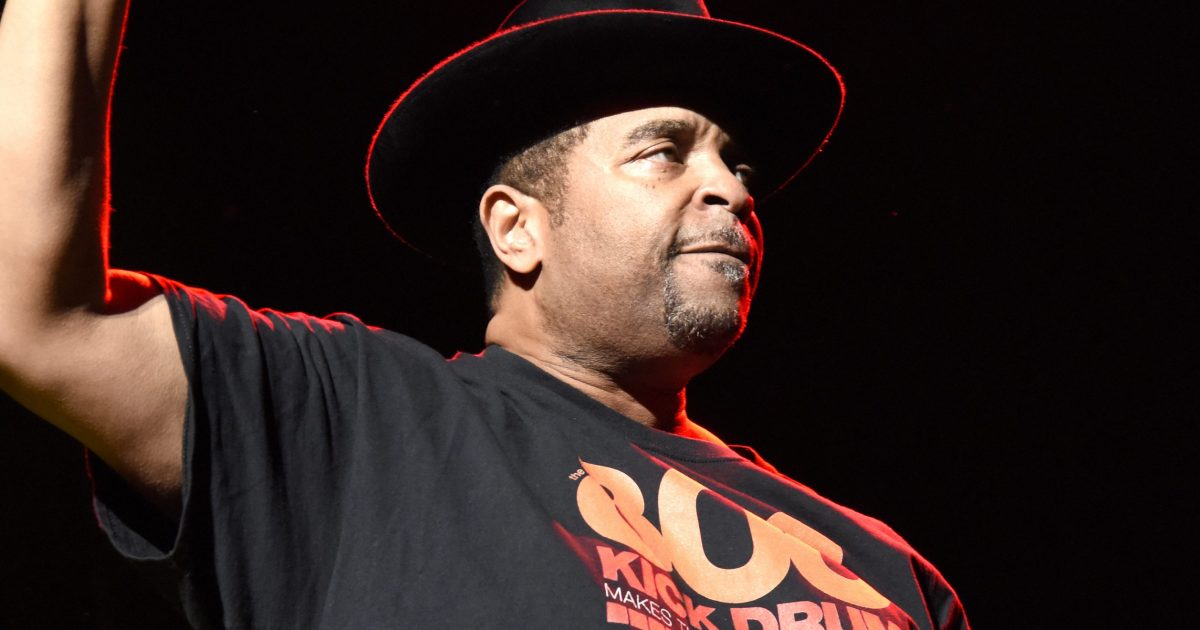Humor For a Good Cause
- ’90s rapper Sir Mix-A-Lot, known for his legendary song “Baby Got Back (I Like Big Butts),” has created an NFT to raise money for colorectal cancer.
- The Hip Hop artist, whose real name is Anthony Ray, teamed with META-X Studios to release 6,666 hand-drawn NFTs, with the man himself designing some of the rarest items in the collection.
- Colorectal cancer is very often preventable, but it’s still the third most common cause of cancer related deaths in the U.S. Many people are uncomfortable discussing bowel movements, which may lead them to ignore symptoms.
An NFT, or “non-fungible token,” is a “digital asset that links ownership to unique physical or digital items, such as works of art, real estate, music, or videos,” as Business Insider describes.
Read MoreMETA-X Studios CEO Joe Sichta, who was a producer for the Scooby-Doo animation franchise, thought it was fitting to do something silly to raise awareness “of a serious issue that can be embarrassing to talk about” in order to help de-stigmatize the disease. “We all need a good laugh right now for a good cause.”
Related: Everything You Need to Know About Colorectal Cancer Screenings
Michael Sapienza, CEO of Colorectal Cancer Alliance, says he is “honored” by what this team is doing and echoes that the light-hearted, fun nature of the project is a perfect fit.
Related:
"BIT BUTTS will start conversations, heighten awareness of this disease, and support programs for patients that will save lives," Sapienza said of the upcoming NFT drop, which will take place March 28-31.
Colorectal Cancer: Reducing the Stigma
Colorectal cancer is often preventable, but it’s still the third most common cause of cancer related deaths in the U.S.
Many people are uncomfortable discussing bowel movements and anxious about the prospect of a colonoscopy, which may lead them to ignore symptoms. "You shouldn't die from embarrassment," is the message from Dr. Zuri Murrell, a colorectal surgeon at Cedars-Sinai.
“I always like to make everybody say the words colon, rectum, and anus,” Dr. Murrell told SurvivorNet in a previous interview. “And often people laugh and people giggle, but then I tell them that you shouldn’t die from fear, and you shouldn’t die from embarrassment. And that’s really the only two reasons that people are dying from this disease today.”
"You Shouldn't Die From Embarrassment" Colon Cancer Can Be Prevented
That being said, it's also very important to understand you should never feel guilty about the fact that you got cancer. There are many doctors, like Dr. Murrell, who believe it's necessary to rattle the cages to make people aware of the critical importance of screening, especially among some population groups who are at higher risk for the disease.
What can you do to prevent it? “We need 20 to 25 grams of fiber a day to have something called a nice bowel movement,” Dr. Murrell said. “Say those words with me. This is a toilet conversation that needs to be brought out to the dinner table.”
Major Reduction in Cancer Risk by Following Old Standbys Diet and Exercise
Symptoms of Colon Cancer
One of the most common signs of colon cancer is a change in bowel habits. This ranges from constipation or diarrhea to changes in the size or shape of bowel movements. A change in stool color, particularly black or tarry stools, can indicate bleeding from a tumor that lies deep in the colon.
Other symptoms can be harder to pinpoint, such as abdominal pain and unintentional weight loss. Finally, some tumors bleed a small amount over a long period of time, resulting in anemia (low red blood cell count) that is picked up on blood work.
Doctors recommend to start screening for colon cancer at 45, or 35 if you have a family history. As always, listen to your body, be on the lookout for any symptoms, and make sure to see a doctor OR THREE until you feel that your concerns are properly addressed.
No one lives in this body but us, so it's crucial to take care of yourself by being your own advocate. If not, it could shave years off your life when you get that advanced stage diagnosis down the road. Finding cancer early is the key.
Learn more about SurvivorNet's rigorous medical review process.


